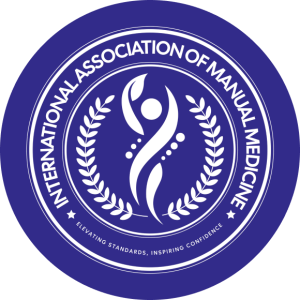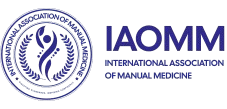QUALITY ASSURANCE
CERTIFICATION
IAOMM Quality Assurance Certification
The International Association of Musculoskeletal Medicine(IAOMM) standards become an easy and effective instrument for measuring institutional education quality on an international level because they are not affected by local legislative formats, regulations, or cultural idiosyncrasies.
IAOMM certifies institutions and educational providers who meet its quality standards for higher education. All standards highlight best practices at all levels of education and training and are adaptable to a variety of needs and situations.
Educational providers use Quality Assurance Certification to verify that they are operating according to the best industry practices. They also find that the quality standards program helps to set them well on a path of continuous improvement.

The accreditation standards set forth by the IAOMM are:

1. Administrative Responsibility
The accreditation of administrative responsibility refers to results associated with the legal status, facilities, financial stability, and staff of the institution as well as its commitment to ethical values and continuous improvement. The applicant higher education institution must demonstrate its administrative capacity, stability, and responsibility. The following set of standards will guide the institution to achieve the desired administrative responsibility:
- Identification
- Legal Authorization
- Accreditation
- Recognition and References
- Facilities
- Financial Stability
- Qualified Staff
- Educational Values and Ethics
- Permanent Quality Control
- Continuous Improvement
2. Institutional Integrity
The accreditation of institutional integrity refers to results associated with information and admission, fees, and the overall administration of the institutional processes and services. The applicant higher education institution must demonstrate the means and procedures that assure its institutional integrity. The following set of standards will guide the institution to achieve the desired institutional integrity:
- Information and Veracity
- Admission Procedures
- Legal Contract
- Assistance
- Post-Graduate Service


3. Academic Quality
The accreditation of academic quality refers to results associated with teaching, learning, and service. The applicant higher education institution must explain the means and procedures that advance academic quality. It must demonstrate how those procedures emphasize student achievement and high expectations of teaching and learning, research, and service; and that those procedures are developed within the framework of institutional mission. The following set of standards will guide the institution to achieve the desired academic quality results:
- Courses or Programs Description
- Hours of Study
- Course Objectives or Expected Learning Outcomes
- Course Contents and Materials
- Course Delivery and Availability
- Course Update
- Teaching Methodology
- Tutorial or Guidance
- Teachers Proficiency
- Assessment and Evaluation
- Certificate or Diploma
- Transcript or Equivalent

What Do You Get Upon Certification?
- IAOMM Quality Assurance Certificate
- IAOMM’s Certification Seal
- Certified Members Directory Listing
- E-delivery of News Alerts and Newsletter
- Discounts for all IAOMM sponsored events

